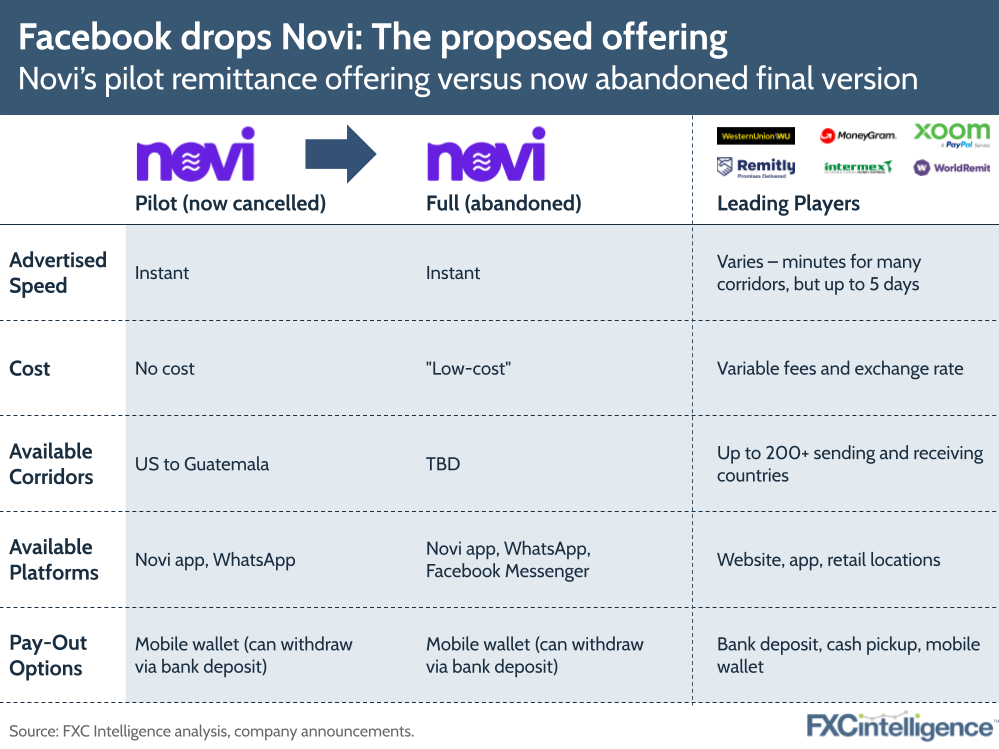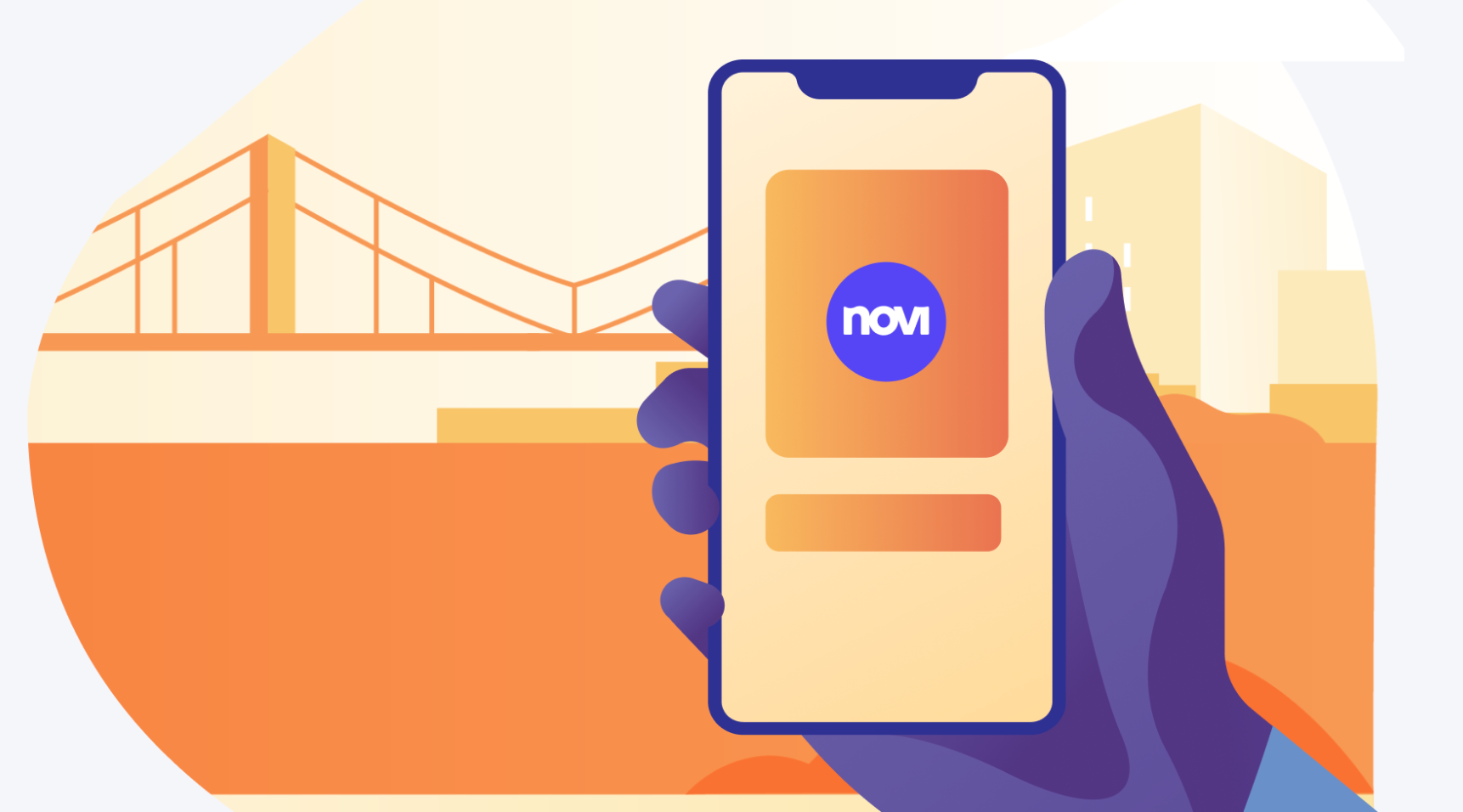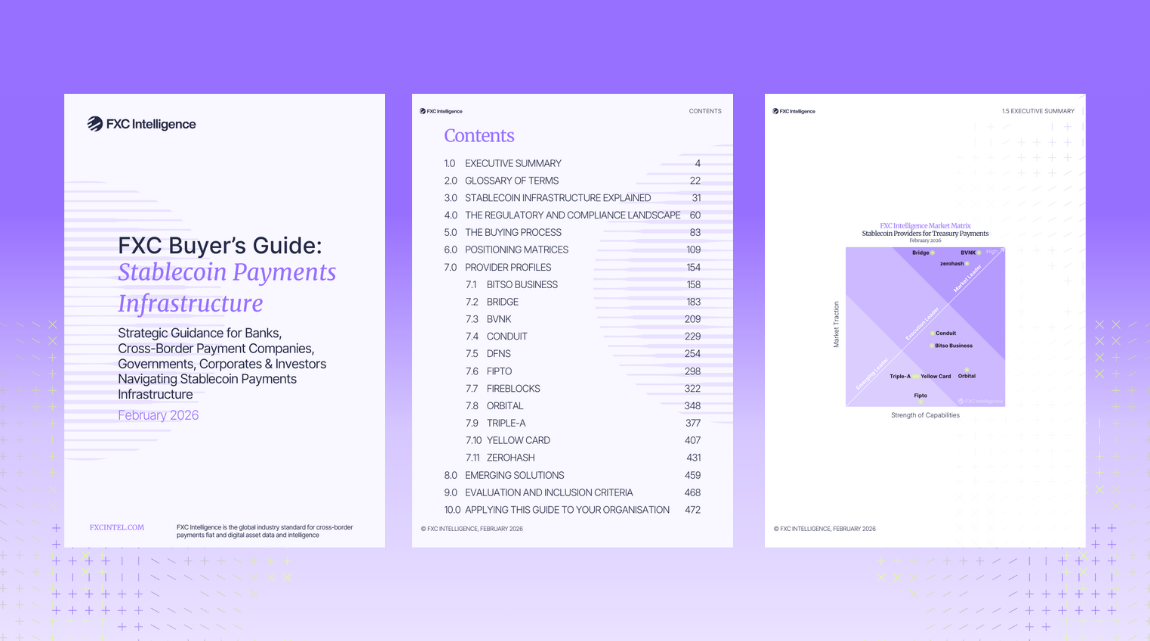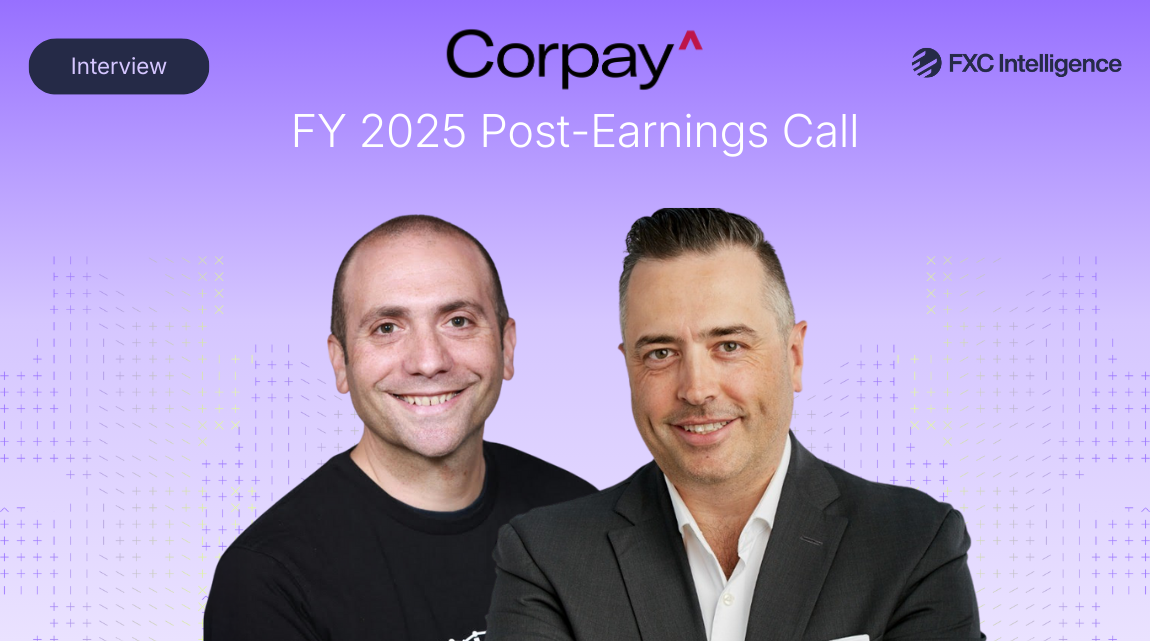Novi, the stablecoin remittance project from Facebook parent Meta, has been closed. What happened and is this the last we’ll see of the project?
Last Friday saw Novi, the stablecoin remittance offering from Facebook owner Meta, announced it was closing its US to Guatemala pilot project just eight months after it was originally launched, and is ending plans to expand the project further.
For the remittance industry, this is likely to be a welcome sign, suggesting that Meta is not looking to make any major plays in the space in the near future. However, for the social media giant, it appears to put an end to the once-ambitious digital currencies project, first announced just three years ago.
The history of Novi, Diem and Libra: From inception to closure

Originally conceived as a global, stable approach to digital currencies, the project began life as Libra, a proposed group of stablecoins. Announced in June 2019 with an intended launch in H1 2020, Libra was intended to be backed by multiple fiat currencies, serving as the go-to currency for online transactions.
Libra was planned to be developed and launched by an association of companies across payments and ecommerce, with around 27 companies, many of whom were leading household names announced at launch. These included the likes of Visa, eBay, Stripe, PayPal and Mastercard, all of whom invested at least $10m each to be a founding member of the Libra Association.
The association’s founding members would variously ensure Libra was embedded into the online payment system at all stages, helping to encourage adoption and use. Over the following year, it was planned to grow the list of members to around 100.
Facebook would also be a founding member the Libra Association, bringing the total to 28, although it would not make money from Libra directly. Instead it planned to offer its own for-profit money transfer service that used Libra. This was originally known as Calibra before it was rebranded as Novi.
However, despite a significant marketing push from Facebook, the project did not meet the reception the company had hoped. Industry commentators, members of the public and financial regulators all raised a variety of concerns, many around issues of sovereignty, security and control. This led many of the founding members to drop out within only a few months of the initial announcement, and raised serious doubts over the project’s ability to gain the required regulatory approvals.
Neither Libra nor Calibra emerged during the initial H1 2020 window, and public criticism and regulatory issues caused Libra to be repeatedly delayed and scaled back. Finally in 2021, Novi launched as a pilot – over a year later than originally planned – on the US to Guatemala corridor, with the promise that it would be extended to other markets in the future. However, it did so without its own stablecoin, instead using Paxos’s USDP.
Meanwhile Libra, having been rebranded as Diem, was quietly dropped at the start of this year when its assets and IP were sold to Silvergate, a bank that caters to businesses in the crypto space. Now, three years after the project was first announced, the last remnant of the project in the form of Novi is closing.

Why is Meta cancelling Novi?
Meta has said little about the decision to end Novi publicly, and has given users until 1 September to withdraw any money on the platform. However, the company has indicated that its sole payments focus is now on the metaverse, echoing the announcement the previous week that Facebook Pay was being rebranded to Meta Pay and would soon include metaverse-specific capabilities.
“As we continue to focus our efforts on building the metaverse, we are ending the Novi pilot,” the company said in response to a user question about Novi’s closure on Twitter.
“The technologies that we’ve developed will help us to build new payments experiences for people and businesses in the metaverse.”
Meta has not provided any insights into the performance of Novi during the pilot, so it is not clear if its cap of 200,000 users holding or transacting was ever reached during the eight month period. Our own data does show that competitors did reduce their pricing on the US to Guatemala corridor following the initial announcement, presumably in response to the fact that during the pilot the instant transfer service was offered at no cost to users, with the ultimate plan for it to be “low cost”.
The decision to cancel Novi entirely appears to have been taken relatively recently, as Novi was still advising users that it planned to expand to other corridors as recently as two months before its cancellation. It is possible it is entirely due to the company’s refocus on metaverse payments, but low uptake or even a drop in public perceptions about stablecoins following the collapse of UST may have also played a role.
Whether this is the end of Facebook’s moves into remittances remains to be seen. However, we may yet see the company look to bring remittances to the metaverse using the insights it gained from the Novi pilot.
Meta Pay, which until recently was known as Facebook Pay, does already allow P2P money transfers within the service, and which could be extended to focus more on remittances as the company develops the offering further. This would, presumably, be tied into the metaverse, given that is now Meta’s sole focus for future payments projects. However, how the metaverse would bring value to remittances remains an unanswered question, and one that even Meta may not seek to answer.



